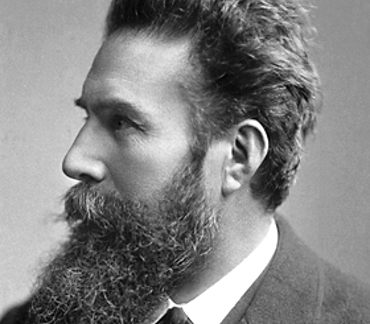
Wilhelm Conrad Röntgen, German physicist, 1845-1923
Wilhelm Conrad Röntgen was a German physicist, who, on 8 November 1895, produced and detected electromagnetic radiation in a wavelength range known as X-rays or Röntgen rays, an achievement that earned him the first Nobel Prize in Physics in 1901. The award was officially "in recognition of the extraordinary services he has rendered by the discovery of the remarkable rays subsequently named after him". In honour of his accomplishments, in 2004 the International Union of Pure and Applied Chemistry (IUPAC) named element 111, roentgenium, a radioactive element with multiple unstable isotopes, after him.
